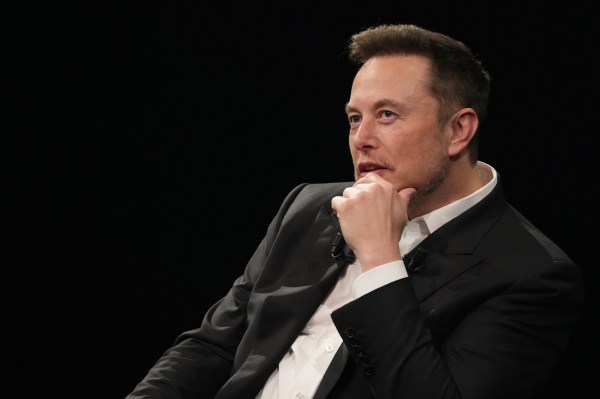Elon Musk, Twitter’s not-so-benevolent CEO, today announced the launch of a new organization, xAI, to “understand the true nature of the universe.”
Ambitious? A little. So how does xAI plan to achieve it? More details will be announced during a Twitter Spaces on Friday, apparently. But xAI’s splash page reveals that the team — 12 people strong, currently — will be led by Musk and veterans of DeepMind, OpenAI, Google Research, Microsoft Research, Tesla and the University of Toronto.
xAI’s namesake is X Corp., the name assigned to Twitter since early April, along with the “X” label Musk has applied to his vision of an “everything app.”
xAI will be advised by Dan Hendrycks, the director at the Center for AI Safety, an AI research nonprofit. And it’ll work with Twitter and one of Musk’s other companies, Tesla, to “make progress towards [its] mission” — whatever that mission ends up being.
While Musk’s saving the juicy tidbits for Friday, xAI’s roster gives some clues as to what the organization’s work might entail. Many of the founding members specialize in large language models along the lines of OpenAI’s GPT-4 or have experience in techniques like reinforcement learning, which teaches AI models to accomplish tasks by rewarding them for performing those tasks.
In an interview with Tucker Carlson in April, Musk said that he wanted to build what he referred to as “TruthGPT,” a “maximum-truth-seeking AI.” Likely, xAI’s efforts will start there, perhaps taking the form of a text-generating AI that Musk perceives as more “truthful” than existing ones; Musk has previously suggested that Twitter would use its own data to train ChatGPT-like tech.
Rumors about Musk starting up an AI company have been floating around for some time, with a report earlier this year from Business Insider revealing that Musk had purchased thousands of GPUs to power an upcoming generative AI product. The Financial Times similarly reported that Musk planned to create an AI firm to compete with the Microsoft-backed OpenAI, even reportedly seeking funding from SpaceX and Tesla investors to get the company started.
Musk’s AI ambitions have grown since the billionaire’s split with OpenAI co-founders Sam Altman and Ilya Sutskever several years ago. Launched as a nonprofit in 2015, OpenAI took on $1 billion in donations from Musk and others.
As OpenAI’s focus shifted from open source research to primarily commercial projects, Musk grew disillusioned — and competitive — with the company on whose board he sat. He poached key employees from OpenAI to work on Autopilot, Tesla’s driver assistance tech. And he became openly critical of OpenAI, referring to it at one point as a “profit-maximizing demon from hell.”
Musk resigned from the OpenAI board in 2018. And more recently, he cut off the company’s access to Twitter data, arguing that OpenAI, which had a $2-million-a-year licensing deal with Twitter established before Musk came aboard as CEO, wasn’t paying enough.
